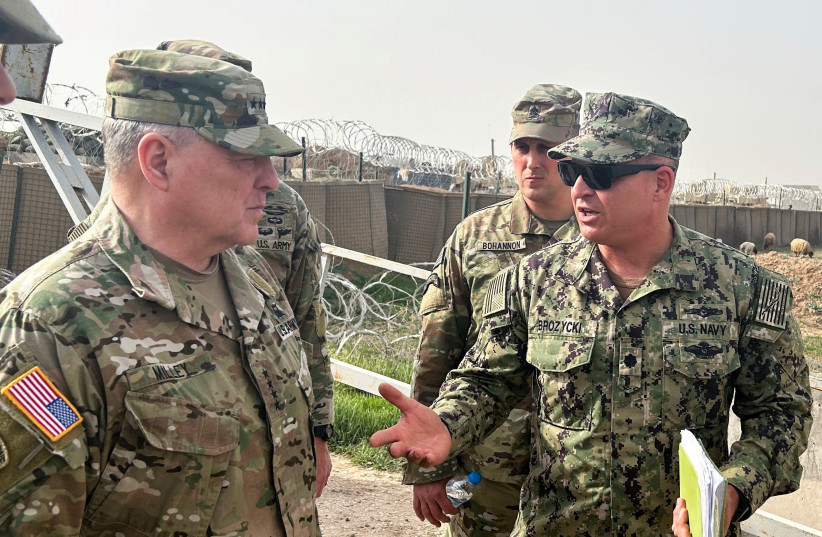US forces in Syria responded to what the US-led anti-ISIS Coalition called an “indirect fire attack in the Deir ez-Zor region” on April 10 just before sunset. In March two rounds of attacks carried out by Iranian-backed groups targeted US forces in Syria. Those attacks involved a drone attack and rocket barrage on US forces in eastern Syria on March 24.
It’s important to note that the US didn’t mention Iran or Iran-backed groups regarding the April 10 attack. However the attack fits the modus operandi of Iran-backed groups. Apparently the April 10 attack struck Mission Support Site Conoco in eastern Syria, according to an article at The Hill.
The Coalition put out a statement on April 11 saying that “there were no Coalition casualties and no damage to Coalition infrastructure.”
"The commanding US general of Combined Joint Task Force - Operation Inherent Resolve, condemned the attacks.” These attacks are reckless and needlessly endanger the people of northeast Syria,” said US Major General Matthew McFarlane. "This appears to be yet another attempt to detract us from our mission, but we remain firmly committed."
The Coalition generally does not comment on these attacks. Recent reports say there have been almost 80 attacks on US forces in Iraq and Syria over the last several years.

In January the Coalition said that “members of the Syrian Free Army and Coalition Forces responded to an attack by three unmanned aerial systems in the vicinity of al-Tanf Garrison at approximately 9:20 a.m., Jan. 20, 2023. Coalition Forces successfully engaged two of the three UAS preventing their impact. The third UAS landed within an SFA compound, resulting in zero Coalition casualties and zero reported damage to Coalition infrastructure.”
In August and September of 2022, the Coalition also put out statements on another attack in eastern Syria that targeted the “Green village” location, which has been targeted numerous times. There was also an August 2022 drone attack at Tanf garrison which is located in Syria near the Jordan and Iraq borders.
What is the nature of Iranian attacks?
The Iranian threat against US forces in Syria tends to consist of these kinds of harassing attacks. They attack the same sites usually using the same methods. This means they usually use drones against Tanf and they use drones and rockets against the Green Village and Conoco sites. Explosives were also planted in April 2022.
The Iranian-backed attacks on US forces in Syria is similar to how Iran also tries to operationalize groups to strike at Israel. The use of simile rockets and drones is part of the method. These systems are typical to the groups Iran backs. These kinds of rockets may include 107mm or other types of rockets that have a relatively short range. The drones are more sophisticated but are much cheaper than the kinds of drones being used by western countries. The drones are kamikaze drones and they are designed to be destroyed.
Iran traffics this technology to various armed groups and then has them do the dirty work for Tehran. The goal of Iran is to keep adversaries off balance and to keep the threat up everyday. That means extensive resources have to be devoted to combat the threat and that distracts from the kinds of missions the US is doing in Syria, such as keeping ISIS defeated.
The goal is also to fuel instability. While much of the region is becoming more stable and doing high level diplomacy, Iran prefers to use small groups to destabilize areas. As the Syrian regime is now apparently seeking to return to the Arab League it could be an opportunity for countries to demand Iran stop this behavior. However, the fact that Iran has now reconciled with Saudi Arabia and it is increasing its attacks using Syria shows that reducing Iran’s threats from Syria is not yet part of any discussion about Syria’s reconciliation with various Arab countries.
The US is aware of the increased Iranian threat, it has kept an aircraft carrier in the Mediterranean and sent other naval assets to the region, according to recent reports.
